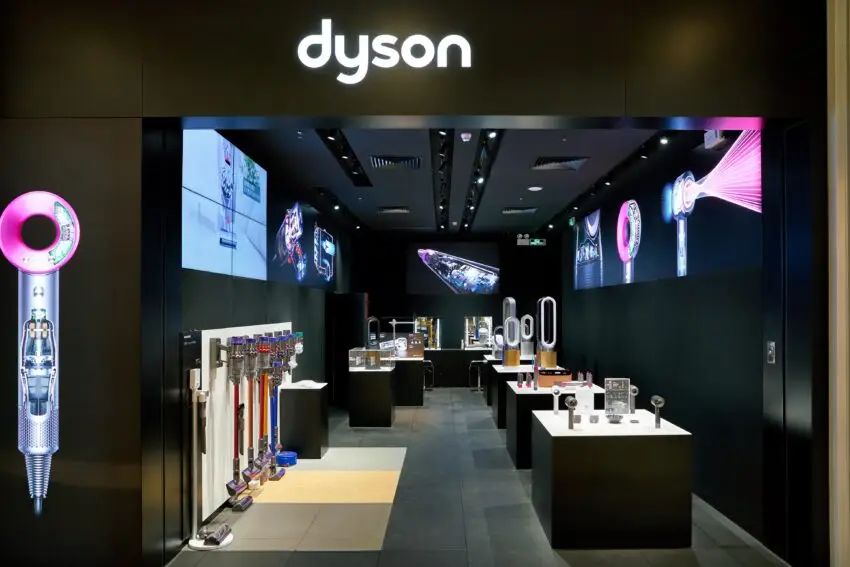Dyson, the well-known technology company, is planning to cut nearly a third of its workforce in the United Kingdom. This decision has been made due to the intense market competition and follows a global review of the company’s operations.
The announcement reveals that around 1,000 of the 3,500 employees based in the UK will be laid off. This major reduction is part of a strategic move to remain competitive in the fierce global markets. The Malmesbury campus in Wiltshire, which hosts one of Dyson’s main research sites and the Dyson Institute, will be notably impacted. It is not yet clear whether these job cuts will extend to Dyson’s international operations, including the 2,000 employees based in Singapore.
Introduction
Dyson, the well-known technology company, is planning to cut nearly a third of its workforce in the United Kingdom. This decision has been made due to the intense market competition and follows a global review of the company’s operations.
Job Cuts and Affected Areas
The announcement reveals that around 1,000 of the 3,500 employees based in the UK will be laid off. This major reduction is part of a strategic move to remain competitive in the fierce global markets. The Malmesbury campus in Wiltshire, which hosts one of Dyson’s main research sites and the Dyson Institute, will be notably impacted. It is not yet clear whether these job cuts will extend to Dyson’s international operations, including the 2,000 employees based in Singapore.
Reasons Behind the Redundancies
Hanno Kirner, Dyson’s chief executive, described the redundancies as “painful” but necessary. The decision to cut jobs follows a global operational review initiated earlier this year. This review is not connected to the recent policies of the new Labour government but aims to align the company with its future strategies and objectives. “We have grown quickly and, like all companies, we review our global structures from time to time to ensure we are prepared for the future,” said Kirner in a statement.
Impact of Recent Developments
The job cuts come on the heels of Dyson’s decision to end its electric car project and the release of its new Zone Absolute headphones. These headphones, which combine noise-cancelling features with air purification, were initially priced at £819.99 but were later reduced to £579.99. The financial performance of Dyson Ltd, the UK branch responsible for several household gadgets, showed a decline in UK sales by 10% in 2022, amounting to £376 million. Despite this, the company’s global sales increased from £6 billion to £6.5 billion.
Financial Performance
Despite facing challenges such as supply chain disruptions and the closure of its Russian operations, Dyson reported a growth in revenues to £7.1 billion in the following year. The company’s ability to navigate these obstacles showcases its resilience and adaptability in a highly competitive market. The sales boost was significant, even with the various challenges encountered.
CEO’s Remarks
In addressing the difficult decision, Hanno Kirner highlighted the need to be entrepreneurial and agile. “We know we always need to be entrepreneurial and agile – principles that are not new to Dyson,” he said. Kirner further acknowledged the personal impact on those affected, stating, “Decisions which impact close and talented colleagues are always incredibly painful. Those whose roles are at risk of redundancy as a result of the proposals will be supported through the process.”
Recent Criticisms from Sir James Dyson
The announcement also follows criticisms by Sir James Dyson towards the former Conservative government’s economic policies. He described their approach as “short-sighted” and a hindrance to business growth. In comments made to The Telegraph, Sir James underscored that Dyson’s success came “despite government, rather than because of it.”
Future Outlook
With the job cuts and recent product releases, Dyson is looking ahead to a future where it can continue to innovate and compete. The company’s strategic realignments and decisions are part of a broader effort to maintain its position in the market. Ensuring sustainability and profitability in a rapidly changing technology landscape is crucial for Dyson’s continued success.
The decision to cut jobs at Dyson highlights the intense challenges faced by global companies in today’s competitive market.
Despite the pain of job losses, Dyson aims to continue innovating and competing on a global scale.
These changes reflect Dyson’s commitment to staying agile and entrepreneurial, ensuring its future success.


